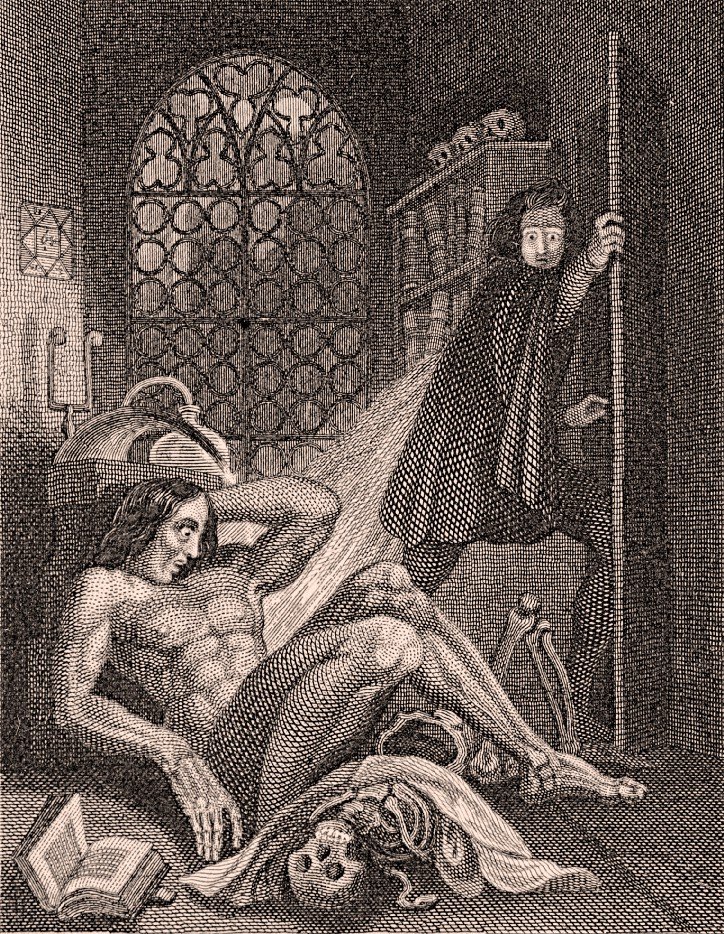 Image 1 of 1
Image 1 of 1


PAST CLASS "Frankenstein", Race, and Technology: An Online Reading Group with Dr. Wendy C. Nielsen, Author of "Motherless Creations: Fictions of Artificial Life, 1650-1890", Begins March 9, 2022
Wednesdays March 9, 16, and 23, 2022
7:30-9pm EST (4:30-6pm PST, 5:30-7pm RMT)
Admission: $65 (Patreon members) $75 (General admission)
PLEASE NOTE: All classes will be recorded and archived for students who cannot make that time
What lessons does Mary Shelley's Frankenstein have to teach us about Black Lives Matter and the role of science and technology in shaping our concept of who counts as human? What can we learn through Shelley's novel about extending human rights (including the right to reproduce) to synthetic, artificial life forms?
This three-week reading group will meet to discuss Shelley's novel and the scholarly research and films it inspires. Participants should acquire their own edition of Frankenstein (preferably the 1818 edition) and will be provided with readings analyzing the novel and exploring theories about science, technology, and their impact on racial discrimination. The group will also view clips from early Frankenstein films by Edison and Whale. Topics may include but will not be limited to artificial life, the singularity, slavery, miscegenation and the companion, and incest.
Wendy C. Nielsen (www.wendynielsen.com) is Associate Professor of English at Montclair State University in New Jersey, where she teaches European Romanticism, Science Fiction, Enlightenment literature, and other courses about comparative literature. She is interested in solving why certain popular figures recur in British, German, and French literature, as seen in her book Women Warriors in Romantic Drama (University of Delaware Press, 2012) and the forthcoming monograph, Motherless Creations: Fictions of Artificial Life, 1650-1890 (Routledge, 2022). She regularly publishes scholarly essays in academic journals on world literature, Romantic-era automata, theater, the French Revolution, Jean-Jacques Rousseau, Olympe de Gouges, Johann Wolfgang von Goethe, Elizabeth Inchbald, Charlotte Corday, and Boadicea.
Wednesdays March 9, 16, and 23, 2022
7:30-9pm EST (4:30-6pm PST, 5:30-7pm RMT)
Admission: $65 (Patreon members) $75 (General admission)
PLEASE NOTE: All classes will be recorded and archived for students who cannot make that time
What lessons does Mary Shelley's Frankenstein have to teach us about Black Lives Matter and the role of science and technology in shaping our concept of who counts as human? What can we learn through Shelley's novel about extending human rights (including the right to reproduce) to synthetic, artificial life forms?
This three-week reading group will meet to discuss Shelley's novel and the scholarly research and films it inspires. Participants should acquire their own edition of Frankenstein (preferably the 1818 edition) and will be provided with readings analyzing the novel and exploring theories about science, technology, and their impact on racial discrimination. The group will also view clips from early Frankenstein films by Edison and Whale. Topics may include but will not be limited to artificial life, the singularity, slavery, miscegenation and the companion, and incest.
Wendy C. Nielsen (www.wendynielsen.com) is Associate Professor of English at Montclair State University in New Jersey, where she teaches European Romanticism, Science Fiction, Enlightenment literature, and other courses about comparative literature. She is interested in solving why certain popular figures recur in British, German, and French literature, as seen in her book Women Warriors in Romantic Drama (University of Delaware Press, 2012) and the forthcoming monograph, Motherless Creations: Fictions of Artificial Life, 1650-1890 (Routledge, 2022). She regularly publishes scholarly essays in academic journals on world literature, Romantic-era automata, theater, the French Revolution, Jean-Jacques Rousseau, Olympe de Gouges, Johann Wolfgang von Goethe, Elizabeth Inchbald, Charlotte Corday, and Boadicea.
